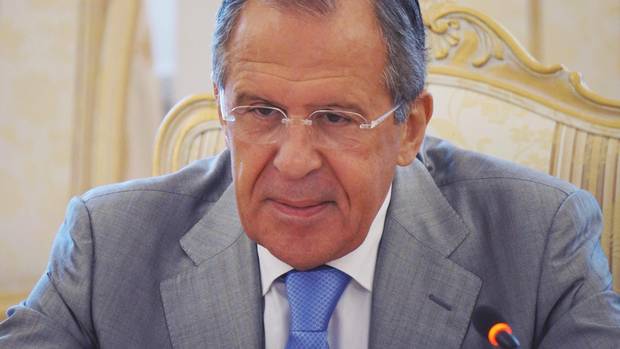Europa/Rusia/Noviembre de 2016/Fuente: The Globe and Mail
RESUMEN: Este fin de semana, Lima será anfitrión de una reunión regular del foro de Cooperación Económica Asia-Pacífico. Líderes de 21 países se reunirán para discutir asuntos económicos globales y regionales urgentes y trazarán las tareas futuras. La cumbre tendrá lugar en un contexto de turbulencia política y económica global. La formación continua de un nuevo orden mundial policéntrico se acompaña de una creciente inestabilidad. El terrorismo y el extremismo, los conflictos regionales y las crisis migratorias plantean cada vez más riesgos. Las «guerras de información» son incitadas a minar a los estados soberanos. Algunos países persiguen el mismo propósito nefasto recurriendo cada vez más a las sanciones comerciales y financieras ilegales unilaterales que impugnan la prerrogativa exclusiva del Consejo de Seguridad de las Naciones Unidas.
This weekend, Lima will play host to a regular meeting of the Asia-Pacific Economic Co-operation forum. Leaders of 21 countries will gather to discuss pressing global and regional economic issues and chart future tasks.
The summit will take place against the background of global political and economic turbulence. The ongoing shaping of a new, polycentric world order is accompanied by growing instability. There are increasing risks posed by terrorism and extremism, regional conflicts and migration crises. “Information wars” are incited to undermine sovereign states. Some countries pursue the same nefarious purpose by resorting increasingly often to illegal unilateral trade and financial sanctions challenging the exclusive prerogative of the United Nations Security Council.
All of this has seriously hampered efforts to finally overcome the global financial crisis and get the world economy back on track toward steady and balanced growth. It has affected investment, global GDP growth and international trade.
In the Asia-Pacific, the effects of these negative tendencies have been mitigated by major technological and financial potential that has enabled the region to maintain a leading position in world affairs. However, it is evident that these challenges will have a negative impact on the prospects of long-term growth in this region, too.
As a Eurasian power and an inalienable part of the Asia-Pacific region in terms of geography, history, politics, and economy, Russia is interested in ensuring peace, stability and prosperity in the entire region. Constructive involvement in its system of dynamic economic links is an objective prerequisite to fulfilment of our own tasks, particularly those of accelerated development of the Russian Far East, including our participation in regional integration processes.
We are convinced that the only possible way to create a favourable environment for sustainable progress in an increasingly interconnected world is through co-operation with obligatory regard for the political and economic interests of all countries.
In politics and security, we stand for tackling this task through collective development of a code of mutually acceptable conduct based on the principle of equal and indivisible security. Judging by the support for this approach from a growing number of partners, the need for it is on the rise.
The current situation urges us to apply this principle to social and economic development as well, all the more so if regional economies genuinely want to make it inclusive. We are pleased to note that the idea is gaining supporters in APEC, as it naturally complements the principles of consensus and voluntariness that are fundamental for the forum.
Lack of progress in the Doha Round of multilateral trade negotiations is undoubtedly a significant contributing factor in the current instability of the global economy. That inflicts a shift in focus from global governance to regional trade mechanisms that in certain cases involve regulation aspects that far exceed the World Trade Organization agenda. Thereby, the role of the WTO as a unique organization establishing and co-ordinating the universal rules of world trade is challenged. As a result, virtually closed areas with strict control over production chains are being created, basically for receiving maximum technological rent by a restricted number of players, which runs counter to the interests of regional and global development.
In this connection, we consider that one of the priorities of the forthcoming summit is to explicitly confirm APEC’s principal position concerning the complementary role of regional trade agreements as regards the multilateral trade system. This is the only way to ensure balanced development of the global economy, and prevent its fragmentation and destabilization.
There are more than 150 bilateral and multilateral free-trade agreements today in the APEC region. A joint strategic study has been undertaken on issues related to the realization of a Free Trade Area of the Asia-Pacific. Its participants have not yet agreed upon the optimal format and operational parameters of a FTAAP. However, they have already drawn the main conclusion that it is necessary to equally take into account the experience of all regional integration associations without exception, including the APEC economic community, the Pacific Alliance and the Eurasian Economic Union. For our part, we are convinced that only constructive interaction on a transparent and non-discriminatory basis to link these associations would avoid the risks of crisis and allow broader use of best regulatory practices.
Fuente: http://www.theglobeandmail.com/report-on-business/rob-commentary/in-a-polycentric-world-russia-wants-to-collaborate/article32877820/








 Users Today : 30
Users Today : 30 Total Users : 35460239
Total Users : 35460239 Views Today : 38
Views Today : 38 Total views : 3418933
Total views : 3418933